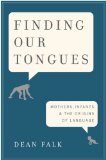March 12, 2009

The Oxford Handbook of Philosophy of Mind (Oxford University Press, 2009) is available, with “Look Inside” at Amazon for a preview of the Table of Contents and part of Jaegwon Kim’s article on “Mental Causation.”
Information from the publisher:
Product Description
The study of the mind has always been one of the main preoccupations of philosophers, and has been a booming area of research in recent decades, with remarkable advances in psychology and neuroscience. Oxford University Press now presents the most authoritative and comprehensive guide ever published to the philosophy of mind.
An outstanding international team of contributors offer 45 specially written critical surveys of a wide range of topics relating to the mind. The first two sections cover the place of the mind in the natural world: its ontological status, how it fits into the causal fabric of the universe, and the nature of consciousness. The third section focuses on the much-debated subjects of content and intentionality. The fourth section examines a variety of mental capacities, including memory, imagination, and emotion. The fifth section looks at epistemic issues, in particular regarding knowledge of one’s own and other minds. The volume concludes with a section on self, personhood, and agency.
The Oxford Handbook of Philosophy of Mind will be an invaluable resource for advanced students and scholars of philosophy, and also for researchers in neighboring disciplines seeking a high-level survey of the state of the art in this flourishing field.
Comments (2)
- new books,philosophy of mind
March 11, 2009

Visual Thinking for Design by Colin Ware (Morgan Kauffman-Elsevier, 2008)
p. 12 “What we end up actually perceiving is the result of information about the world strongly biased according to what we are attempting to accomplish.”
Ware discusses aspects of visual perception as they relate to design, based on a model of visual thinking as an active process.
According to this new view, visual thinking is a process that has the allocation of attention as its very essence. … This new understanding leads to a revision of our thinking about the nature of visual consciousness. It is more accurate to say that we are conscious of the field of information to which we have rapid access rather than that we are immediately conscious of the world. (p. 3)
An implication for graphic design is that information display should be designed to support visual queries.
I was interested in the contrast drawn between design for narrative vs design for information seeking:
Information seekers have highly individual cognitive threads that are shaped moment-to-moment by the specific demands of the cognitive process of solving a problem. This process is internally driven. Conversely, the audience of a narrative presentation will, if they are attending, have cognitive threads that are much more similar to each other, although still far from identical because of the variety of their prior experiences. (p. 138)
Summing up near the end of the book (p. 172):
The active vision model has four broad implications for design.
1. To support the pattern-finding capability of the brain; that is, to turn information structures into patterns.
2. To optimize the cognitive process as a nested set of activities.
3. To take the economics of cognition into account, considering the cost of learning new tools and ways of seeing.
4. To think about attention at many levels and design for the cognitive thread.
A review at EagerEyes.org has a more detailed chapter-by-chapter summary.
See also: Author’s website
Comments (0)
- cognitive science
March 8, 2009

I recently started a new full time job after being laid off for eight months. The job offer came along about the time that the Kindle 2 was announced, so I decided to treat myself (….for the commute, of course….). I’ve had the Kindle for a little over a week now, coinciding with my first week of work.
I find reading on the Kindle very comfortable; plus, those times when I don’t get a seat on the BART train, I can easily read with one hand. Also the basic web browsing with 3G wireless seems like a great feature for those times when there isn’t a handy WiFi hotspot. Anyone who’s traveled with a heavy suitcase stuffed with reading material might appreciate being able to load up a lightweight Kindle instead.
Some recent books that have Kindle editions include:
How We Decide
Why We Make Mistakes: How We Look Without Seeing, Forget Things in Seconds, and Are All Pretty Sure We Are Way Above Average
Kindle resources that I’ve found so far (please let me know of others in the comments):
Kindle Boards
Joe Wikert’s Kindleville Blog
The Kindle Reader blog
Comments (1)
- reading

Finding Our Tongues: Mothers, Infants, and the Origins of Language by Dean Falk (Basic Books, 2009).
from the publisher:
Description
Scientists have long theorized that abstract, symbolic thinking evolved to help humans negotiate such classically male activities as hunting, tool making, and warfare, and eventually developed into spoken language. In Finding Our Tongues, Dean Falk overturns this established idea, offering a daring new theory that springs from a simple observation: parents all over the world, in all cultures, talk to infants by using baby talk or “Motherese.” Falk shows how Motherese developed as a way of reassuring babies when mothers had to put them down in order to do work. The melodic vocalizations of early Motherese not only provided the basis of language but also contributed to the growth of music and art. Combining cutting-edge neuroscience with classic anthropology, Falk offers a potent challenge to conventional wisdom about the emergence of human language.
Comments (0)
- culture,language,mind,new books






